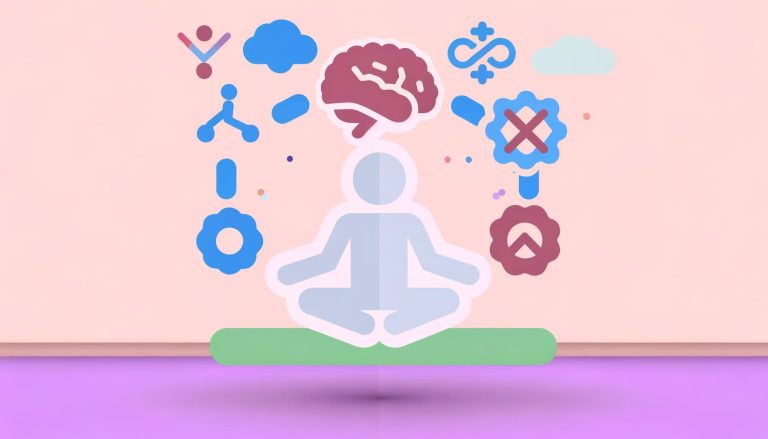Navigating Breakups and Heartbreak in a Healthy Way
Breakups can be one of the most challenging experiences we navigate in our lives. Heartbreak can be physically and emotionally painful, affecting our day-to-day functioning and mental health. Fortunately, there are healthy ways to cope with the end of a relationship and foster personal growth during this difficult time. This article aims to provide comprehensive guidance on how to navigate breakups and heartbreak in a healthy manner, supported by expert advice and actionable steps.
Understanding Emotional Turmoil Post-Breakup
Breakups often lead to a mix of emotions such as sadness, anger, confusion, and even relief. It’s crucial to understand the emotional landscape you may encounter after a breakup to better manage your responses and actions.
The Grieving Process
Just like any other significant loss, breakups usually involve a grieving process. Understanding this can help you recognize that your feelings are normal and give you patience with yourself. The stages of grief typically include:
- Denial: Difficulty in accepting that the relationship has ended.
- Anger: Feeling anger towards your ex-partner or even yourself.
- Bargaining: Trying to negotiate or find ways to undo the breakup.
- Depression: Experiencing deep sadness and possibly isolation.
- Acceptance: Coming to terms with the end of the relationship and beginning to move forward.
Understanding Attachment Styles
Your emotional response to a breakup can be influenced by your attachment style—how you formed emotional bonds with caregivers in your childhood. Understanding whether you have a secure, anxious, or avoidant attachment style can help you better understand your feelings and behaviors during a breakup.
Steps to Heal from a Breakup
Healing from a breakup involves taking proactive steps to address your emotional well-being. Here are some strategies that can facilitate this process:
Self-Care and Mindfulness
Engaging in self-care and mindfulness practices can significantly aid in emotional recovery. Some practical tips include:
- Physical Activity: Regular exercise releases endorphins, helping to improve mood.
- Healthy Eating: Maintain a balanced diet to support your physical and emotional health.
- Mindfulness Meditation: Practicing mindfulness can help keep you grounded and reduce stress levels.
- Sleep Hygiene: Ensure you get adequate and quality sleep to foster emotional resilience.
Building a Support System
Connecting with friends, family, or support groups can offer immense relief and understanding during a breakup. Sharing your feelings and experiences with those who care about you provides an emotional outlet and reduces feelings of isolation.
Setting Boundaries
Setting clear boundaries can help create an emotional buffer and allow you to focus on your healing. Some steps include:
- Limiting Contact: Reducing or eliminating contact with your ex can help you focus on your own needs and recovery.
- Avoid Social Media: Unfollow or mute your ex on social media platforms to avoid unnecessary emotional triggers.
- Communicate Clearly: Be clear with mutual friends about your current needs and boundaries.
Seeking Professional Help
If the emotional burden feels too heavy, don’t hesitate to seek professional help. Therapists and counselors can provide coping strategies and help you navigate your feelings more effectively. Modalities such as Cognitive Behavioral Therapy (CBT) and Dialectical Behavior Therapy (DBT) can be particularly useful.
Embracing New Opportunities
While the end of a relationship marks the closing of one chapter, it also opens the door to new opportunities for personal growth.
Reconnecting with Yourself
A breakup provides a unique opportunity to reconnect with yourself and rediscover passions and hobbies you may have sidelined. Try journaling to gain insights into your thoughts and feelings, and explore new interests to enrich your life.
Fostering New Relationships
As you heal, consider fostering new relationships and connections. This doesn’t necessarily mean rushing into a new romantic relationship but rather nurturing friendships, family bonds, and even professional networks. These connections can provide emotional support and fulfill various aspects of your social needs.
Embracing Positivity and Resilience
Adopting a positive mindset and building resilience can transform your breakup experience into a period of self-discovery and growth. Engage in positive self-talk, set personal goals, and celebrate small wins as you navigate through this period. Remember, resilience isn’t about avoiding pain but rather about recovering and growing stronger through it.
Conclusion
Breakups and heartbreak are undoubtedly challenging experiences, but they also offer valuable opportunities for personal growth and self-reflection. By understanding the emotional turmoil, taking proactive steps to heal, and embracing new opportunities, you can navigate this difficult period in a healthy way. It is important to remember that healing is a journey, and it is entirely okay to seek help along the path. You deserve to come out stronger and more resilient on the other side of heartbreak.
Sources:


